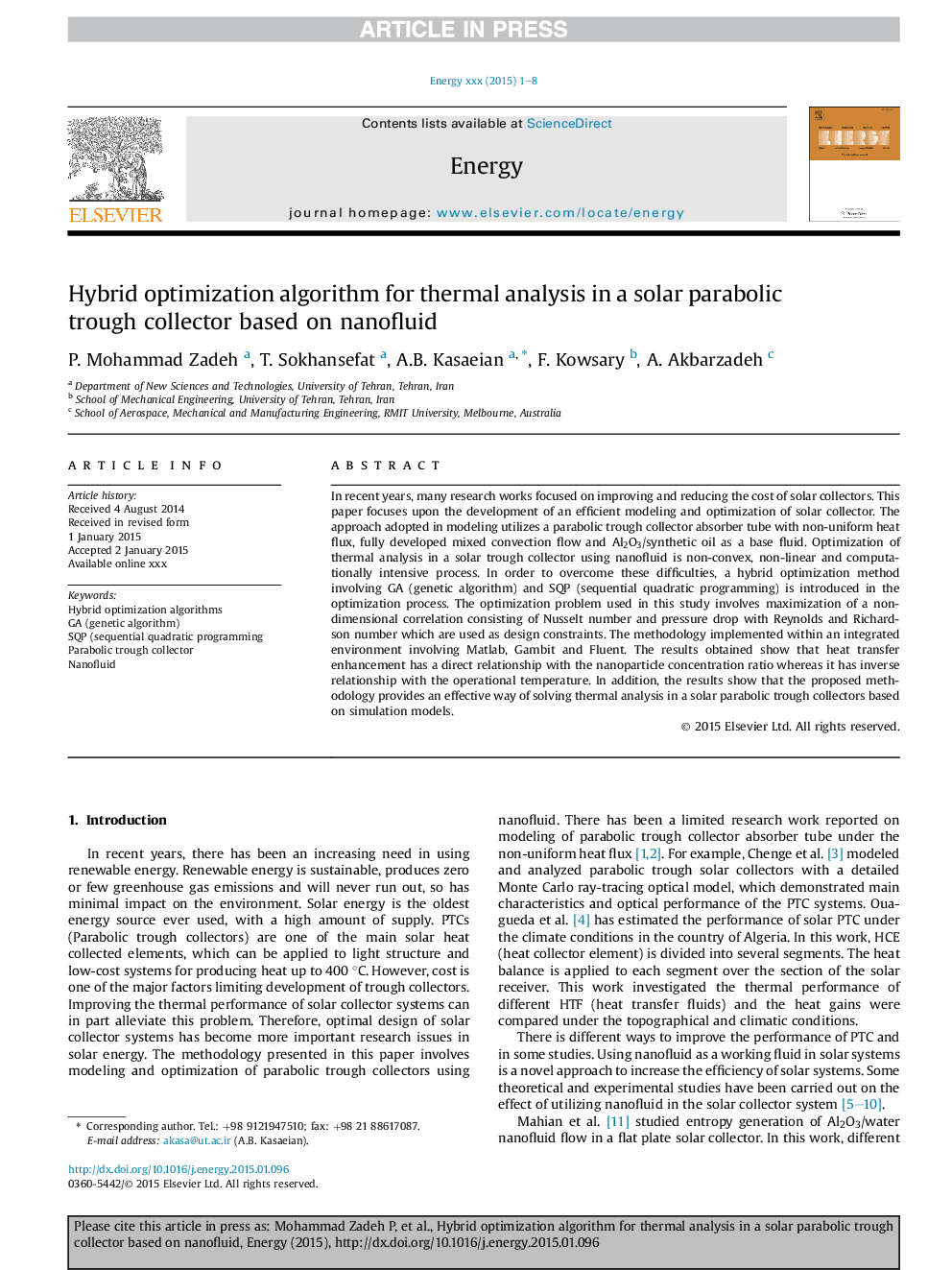| Article ID | Journal | Published Year | Pages | File Type |
|---|---|---|---|---|
| 8075477 | Energy | 2015 | 8 Pages |
Abstract
In recent years, many research works focused on improving and reducing the cost of solar collectors. This paper focuses upon the development of an efficient modeling and optimization of solar collector. The approach adopted in modeling utilizes a parabolic trough collector absorber tube with non-uniform heat flux, fully developed mixed convection flow and Al2O3/synthetic oil as a base fluid. Optimization of thermal analysis in a solar trough collector using nanofluid is non-convex, non-linear and computationally intensive process. In order to overcome these difficulties, a hybrid optimization method involving GA (genetic algorithm) and SQP (sequential quadratic programming) is introduced in the optimization process. The optimization problem used in this study involves maximization of a non-dimensional correlation consisting of Nusselt number and pressure drop with Reynolds and Richardson number which are used as design constraints. The methodology implemented within an integrated environment involving Matlab, Gambit and Fluent. The results obtained show that heat transfer enhancement has a direct relationship with the nanoparticle concentration ratio whereas it has inverse relationship with the operational temperature. In addition, the results show that the proposed methodology provides an effective way of solving thermal analysis in a solar parabolic trough collectors based on simulation models.
Related Topics
Physical Sciences and Engineering
Energy
Energy (General)
Authors
P. Mohammad Zadeh, T. Sokhansefat, A.B. Kasaeian, F. Kowsary, A. Akbarzadeh,
